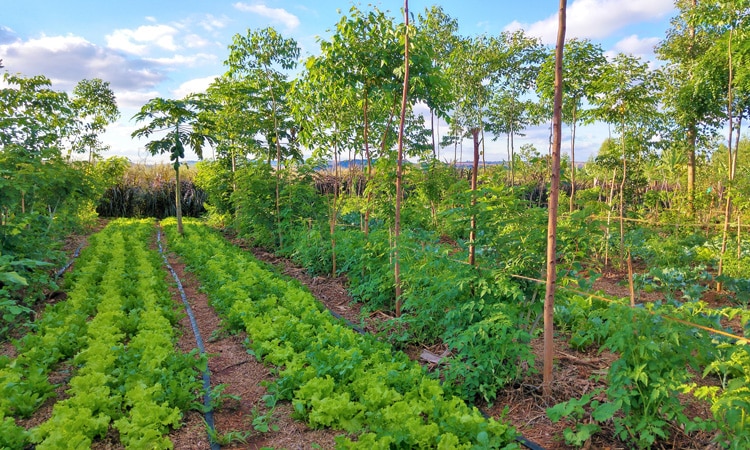USDA Announces $1 Billion for Climate-Smart Projects, Attempts to Create Commodity

WASHINGTON — The USDA recently announced a $1 billion investment in pilot projects to support farmers, ranchers, and forest landowners that choose to implement climate-smart conservation practices. Secretary of Agriculture Tom Vilsack is positioning the initiative as a way to impact climate, improve farm income, and perhaps even create “climate-smart” as a market commodity.
“There is a necessity for agriculture to be a leading effort in the nation’s efforts to try to mitigate the consequences of a changing climate,” Vilsack told the non-profit Bipartisan Policy Center days before the investment funds were announced.
“There is a lot going on in [USDA’s] existing programs, but we need to do more, so we are establishing a framework for a climate-smart agriculture and forestry partnerships initiative.”
Days later, the Partnerships for Climate-Smart Commodities opportunity was debuted in an effort to promote natural climate solutions while also creating a meaningful economic growth engine and income opportunities for agriculture.
Vilsack foretold that this initiative would build off of existing conservation programs while encouraging more grassland activities that have an impact on retaining and storing carbon, like cover crops, low-till or no-till farming, agroforestry, rotational grazing, and reforestation.
But he also hinted at a “tremendous opportunity for different revenue streams and new revenue streams… so that farmers are benefited” in the possible creation of “climate-smart” as a commodity and value-add — similar to the commoditization of organic produce — that could offer American farmers and ranchers an international lead in export opportunities as well as a new income source from carbon markets.
“It is imperative for us from a domestic market perspective and from a foreign market perspective to embrace this,” Vilsack said, suggesting that world markets are increasingly focused on climate and prioritizing the purchase of climate-friendly commodities.
“[Climate-smart] creates an exciting new future in agriculture, one in which farmers will not only benefit from the sale of their commodities, or feeding their commodities to their livestock, but feeding carbon credits,” Vilsack told BPC. “The opportunity to create agricultural waste into biofuels and other materials, fabrics, and fibers; and new jobs in rural places.”
While the definition of climate-smart is currently nebulous, Vilsack hopes the USDA initiative could establish a definition, a standard, and provide resources.
USDA’s $1 billion pilot project investment is a first step in enticing farmers, ranchers and forest landowners to innovate toward creating more productive soil, cleaning up the water, and other sustainable practices while qualifying to earn carbon and wildlife credits as additional income sources.
“We are structuring this in such a way as to ensure opportunities for very small operations, under-represented producers.. and to be sure we don’t penalize early adopters,” Vilsack told BPC in advance of the pilot program release. He assured that new programs would also look to account for geographic differences.
In a notice of funding opportunity USDA’s Commodity Credit Corporation would incentivize these carbon capture practices, but the Initiative will also serve to measure, monitor, and verify how these practices actually benefit the environment through gas reduction and carbon sequestration.
“We recognize that, sadly, 89.6% of farms in America today do not generate the majority of income for the farm families who are farming them,” Vilsack said. “That tells me we’ve got work to do. We’ve got to create more, new, and better markets.
“There’s a tremendous opportunity here for multiple wins if we do this right.”
USDA climate-smart pilot project funding is being offered two rounds, with applicants submitting proposals online. The first round, due April 8, will focus on large-scale projects with proposals ranging from $5 million to $100 million. The second round of funding, due May 27, seeks proposals worth approximately from $250,000 to just under $5 million.
Kate can be reached at [email protected]
























